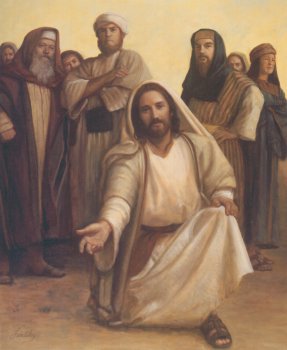 JESUS AND CHRIST: THE DIFFERENCE
JESUS AND CHRIST: THE DIFFERENCE
For me--- there is the Pre-Easter Jesus, and there is the Post-Easter Christ.
The Pre-Easter Jesus is a historical and human being. He is infused with the Divine. He is largely found in the Synoptic Gospels: Mark, Matthew and Luke. I also believe much of the Gospel of Thomas gives us an insight into this individual.
The Pre-Easter Jesus was a human being, who existed historically. I like the sketch of the Pre-Easter Jesus made by Marcus Borg, Jesus scholar: “spirit person, healer, wisdom teacher, social prophet and movement initiator”.
The Post-Easter Christ was the creation of the Christian community, especially by certain followers: Paul and John, the Evangelist and then the fathers of the early church and theologians down through the ages.
What actually was Easter? What happened on that day?
Did Jesus actually rise from the dead on Easter?
Some believe he arose with the same body he had while living.
Some believe after he left the tomb he possessed a spiritual body.
Some believe he did not return from death but his presence was strongly
felt by some of his followers.
Some believe he died on the cross and never was given a proper burial.
However, even a very meticulous student of the historical Jesus as John Dominic Crossan -- a person who tries in his research not to impose his faith on the interpretation of the historical record --- does admit that something happened --- that there was a different spirit among Jesus’ followers -- after Easter than before it.
For example: they seemed to have more courage, confidence, and solid faith.
“What could not have been predicted and might not have been expected was that the end (Calvary)was not the end. Those who had originally experienced divine power through his vision and his example continued to do so after his death. In fact, even more so, because now this power was no longer confined by time or place.” Crossan
Something happened to the followers of Jesus at and/or after Easter. There may be different ways of explaining the phenomenon---but it needs to be accounted for.
Now, I have to ask myself---why am I making all this fuss and using all these words?
After reading books that examine the historical Jesus, the actual human being that lived in Holy Land------I found a person whom I respected, admired, loved and whose priorities and vision appealed to me.
For me --- at this point in time --- there seems to be the “real” Jesus (Pre-Easter Jesus) and then there is the Christ (Post-Easter Jesus).
Christ is what the early church and the later versions of the early church made out of Jesus. Christ is Divine, Mighty, Powerful, part of the Holy Trinity, etc. He is described in the Apostles’ Creed, The Nicene Creed and the Athanatian Creed.
In other words he has been “deified,” larger than life. And for me -- more difficult to relate to him --- because in the transition from Jesus to Christ in the Christian church down through the ages ---- Jesus has lost his humanity. I think that this was a problem I had with my Roman Catholic education. Jesus was God walking and talking. I wanted a real person like myself to relate to.
Another problem I have with the concept of Christ: It has given the opportunity to many persons, churches, theologians, preachers to create their own Jesus. Since the Christ idea or model gives the opportunity for conjecture, intellectualization, and personal whims and wishes. Christ is what Jesus seems to various believers.
The term Christ seems to have acted as a conceptual step which has broken the link between itself and Jesus of Nazareth.
One result is that we find churches that seem to ignore completely the Jesus that patently visible in the Gospels (including or not including Thomas)
When I read the New Testament I see Jesus as--
• a person who has a special concern and love for the poor, for children,
and for the outcasts
• a person who emphasized the dangers of wealth and the deceit of hypocrisy
• a person who opposed the established powers: church and state
• a person who spoke of the relationship between God and his creation ---
as that of a loving, non-judgmental father -- one that we can trust and rely
on as do the birds of the air and the lilies of the field
• a person just like us but one who had an almost "magical" connection with
the Absolute, and who seemed to be always in communion with the Divine in an intimate manner
• one who has been rightfully described by the rather academic term a --
“radical egalitarian”
• one had no intention of founding a new church, but of describing and living
a more vital and personal spiritual way, a manner of life that did not require
a new institution -- but rather a refinement of Judaism.
• a teacher that as far we know wrote nothing, certainly not a weighty tome of
theology. Instead he offered two commandments -- and one of the most
beautifully transformative “recipes” for living close to God: The Beatitudes
.
• a person who must have known his life’s example and teachings would
lead to an early death, but refused to be dissuaded.


